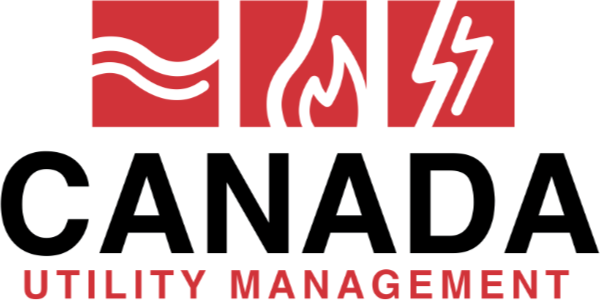North American Leader in Utility Recovery Solutions
Canada Utility Management helps multifamily property owners recover utilities through submeter design, installation, and maintenance, ratio utility billing solutions, invoice processing, collections, vacant cost recovery, and utility benchmarking.
We work directly with our clients to customize a plan that works for the property owner and residents. Our solutions increase net operating income and property values and promote utility conservation.
Services are available for:
Your residents will love us too. We offer 7/24/365 online payment processing and extended hours of English and Spanish phone support.
It’s easy to get started, just click here to find out how much you could be saving on your utilities.
Ontario Utility Regulations
| UTILITY | ELECTRIC | GAS | WATER |
| RUBS ALLOWED | No | No | No |
| SUBMETERING ALLOWED | Yes (with restrictions) | No | No |
Electricity Ratio Utility Billing Solution (RUBS) Regulation(s):
Utility: Electricity
Tenant Billing: Not Allowed
Regulation(s): Ratio Utility Billing (RUBs) of electricity is not allowed as suite metering is required for all new construction and renovations.
Electrical Submetering Regulation(s):
Utility: Electricity
Tenant Billing: Allowed
Regulation(s):
Energy Efficiency Requirements:
Rent Reduction:
To enact an electricity suite metering program, the owner is required to reduce the tenant’s rent by an appropriate amount. This is difficult as one does not know the cost that unit contributes to the total bill but that is the requirement and there are some guidelines within the RTA for computing this presented below:
Residential Tenancies Act (“RTA”) RTA s. 137(3)(c) “reducing the rent…by an amount that accounts for the cost of electricity consumption and related costs.”
O. Reg. 394/10, s.4 – Two formulas can be used for calculating rent reductions
Method 1 – s. 4(4) – Actual Consumption
Method 2 – s. 4(6) – Estimated Unit Consumption
Treatment of electrical heat:
Fees: Not Allowed
Regulation(s):
The Residential Tenancies Act, S.O. 2006, Chapter 17, Part VII, Section 134 (RTA) prohibits owners from charging any fees pertaining to electricity.
“(1) Unless otherwise prescribed, no landlord shall, directly or indirectly, with respect to any rental unit,
(a) collect or require or attempt to collect or require from a tenant or prospective tenant of the rental unit a fee, premium, commission, bonus, penalty, key deposit or other like amount of money whether or not the money is refundable;
(b) require or attempt to require a tenant or prospective tenant to pay any consideration for goods or services as a condition for granting the tenancy or continuing to permit occupancy of a rental unit if that consideration is in addition to the rent the tenant is lawfully required to pay to the landlord; or
(c) rent any portion of the rental unit for a rent which, together with all other rents payable for all other portions of the rental unit, is a sum that is greater than the rent the landlord may lawfully charge for the rental unit. 2006, c. 17, s. 134 (1).”
Notes:
Unit Sub-Metering Requirement for License –
As stated above, Section 57(c.1) of the Ontario Energy Board Act, 1998 requires that any person wishing to engage in unit sub-metering may not do so without a license
Application for a Unit Sub-Metering Licence
While Canada has enacted the Residential Tenancies Act (RTA) at the federal level they do not mandate it to be adopted by the provinces. If adopted by the provinces, they cannot change the provisions thereon. However, they can make other additions and deletions so it is important to consult province RTA before starting a program.
Gas Ratio Utility Billing Solution (RUBS) Regulation(s):
Utility: Gas
Tenant Billing: Not Allowed
Regulation(s): Allocation (RUBs) of gas is prohibited in Ontario because is comprised of rent controlled properties. No rules or regulations have been passed allowing the practice unlike electricity.
Gas Submetering Regulation(s):
Utility: Gas
Tenant Billing: Not Allowed
Regulation(s): Suite metering of gas is prohibited in Ontario because it is comprised of rent controlled properties. No rules or regulations have been passed allowing the practice unlike electricity.
Water Ratio Utility Billing (RUBS) Regulation(s):
Utility: Water/WasteWater
Tenant Billing: Not Allowed
Regulation(s): Allocation (RUBs) of water/wastewater is prohibited in Ontario because it is comprised of rent controlled properties. No rules or regulations have been passed allowing the practice unlike electricity.
Water Submetering Regulation(s):
Utility: Water/WasteWater
Tenant Billing: Not Allowed
Regulation(s): Suite metering of water/wastewater is prohibited in Ontario because it is comprised of rent controlled properties. No rules or regulations have been passed allowing the practice unlike electricity.
TESTIMONIALS
Best Implementation
“I am very impressed with the level of attention given us as we transitioned to their platform. They addressed all our questions, thoroughly validated the data we supplied, and made certain our account was setup exactly as intended. One of the best implementations I’ve been through. Kudos!”
Great Incentives
“Accurately monitoring each apartment home’s electrical usage gives greater incentive for residents to conserve energy, since they are paying for exactly what they use. During a one-year period, an average of 17% less energy was consumed in the submetered residences.”
Seamless Transition
“They have done an excellent job with our properties. They are very professional and have seamlessly transitioned many of our apartment buildings to the Ratio Utility Billing program, as well as setting up online automated meter reading and billing with our newer properties. I would recommend them to small and large property owners alike.”
Canada Utility Services is Your Nationwide Provider
Canada Utility Management provides Utility Billing services across Canada where regulations permit submetering or ratio utility billing systems. We can provide current utility billing regulations in your area to ensure proper setup and a seamless, error free implementation. Find out the current utility regulations in your area. LEARN MORE

